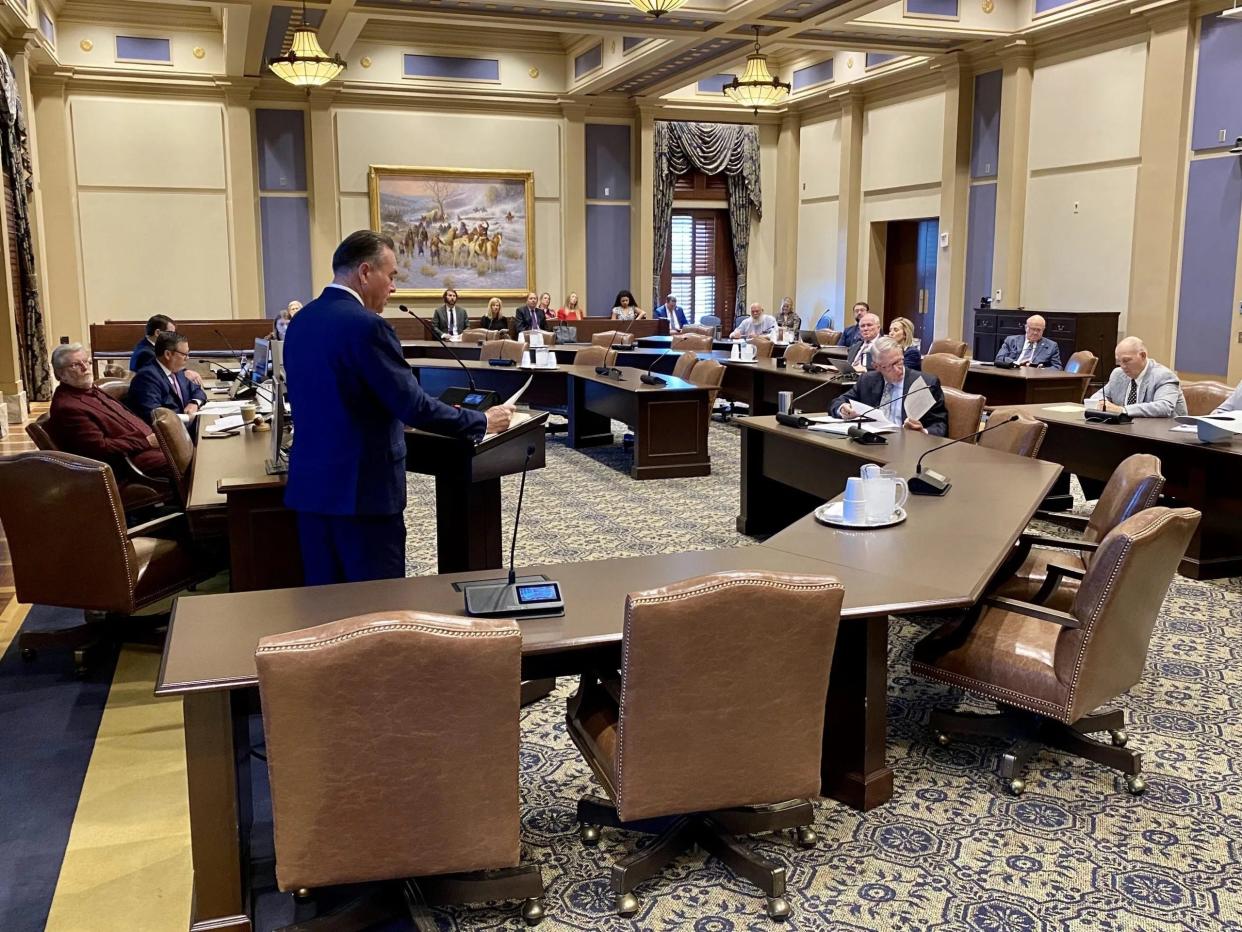Retired state worker says bank blacklist harms his pension in lawsuit

A retired state employee is suing Oklahoma's treasurer, arguing that his enforcement of a new law is harming his pension.
Former Oklahoma Public Employee Association President Don Keenan filed the lawsuit in Oklahoma County District Court on Monday. It seeks to stop a law prohibiting the state from doing business with companies believed to be hostile to the oil and gas industry. Keenan’s lawsuit asks the court to find Oklahoma's Energy Discrimination Elimination Act unconstitutional.
The lawsuit also asks the court to stop state Treasurer Todd Russ from enforcing the law while the case winds its way through the judicial system. The lawsuit said targeting financial institutions is unconstitutional because it could force the state to stop doing business with some pension fund managers at a cost to the retirees who pay into the system.
Additionally, Keenan's lawsuit argued the new law violates the First Amendment of the U.S. Constitution, is unconstitutionally vague and runs foul of a state prohibition on special laws.
More: Oklahoma's bank boycott could cost taxpayers millions, public employee group says
The executive director of the Oklahoma Public Employees Association said his group backed the lawsuit.
“We will not allow Todd Russ to play politics with state employees and retirees’ money,” OPEA chief Tony DeSha said in a media statement. “The pension system is not taxpayer money. It is compensation earned by active employees who currently pay into the system and the pensioners who contributed to the same system for decades.”
DeSha said OPEA, the Oklahoma Retired Educators Association and the Keep Oklahoma’s Promises Coalition support the lawsuit. He said the action was necessary to protect the state’s pension systems.
Russ, the state treasurer, countered that “the spirit and intention of the law is to protect Oklahomans and the economic base of the state.”
What to know about Oklahoma's bank blacklist, and what financial institutions are affected
Oklahoma’s law, which passed the Legislature in 2022, was the result of a push by the State Financial Officers Foundation, a nonprofit based in Kansas that promotes anti-ESG legislation. ESG stands for "environmental, social, governance," a framework used to assess an organization's business practices on various sustainability and ethical issues. For several years Republicans on the state and national level have increased their efforts against ESG policies, which they say is an attempt to push a climate change agenda at the expense of the oil and gas industry. At least 20 states have adopted some type of anti-ESG legislation.
Earlier this year, Russ said his office found that Wells Fargo & Co., BlackRock Inc., JPMorgan Chase & Co., Bank of America, State Street Corp. and Climate First Bank had boycotted the oil and gas industry.
After Russ made the announcement, the managing director of BlackRock, the asset management company, wrote to Russ, denying the claim. BlackRock said it did not boycott oil and gas companies but, in fact, invests in them.
In that letter, sent to Russ in March, Mark McCombe, BlackRock's senior managing director and vice chairman, wrote the company has invested more $15 billion in Oklahoma public energy companies and that 90 percent of that investment is "traditional energies like oil and gas."
More: Oklahoma shortens the list of banned banks. Bank of America, Wells Fargo still barred
"We have also made investments on behalf of our clients in private energy companies globally and in Oklahoma, including an investment in Glass Mountain, the largest private crude oil pipeline system in the Anadarko Basin," McCombe wrote. "We invested $600 million in the 280-mile Oklahoma-based pipeline system in 2017 and subsequently invested another $600 million to expand it to 710 miles."
DeSha, the OPEA chief, said BlackRock manages about $11 billion of state pension funds. “They’ve done really well for our retirees,” he said. “They’ve outperformed the S&P 500 for the past decade. And, at the end of the day, the OPERS system is for the benefit of those paying into it and those receiving money from it.”
Forcing BlackRock out of the pension system could cost retirees about $10 million, DeSha said. Currently, more than 60% of the system’s $10 billion in assets is held in funds controlled by blacklisted companies.
Since its adoption in Oklahoma, the Energy Discrimination Elimination Act had drawn pushback from pension holders, financial institutions and a handful of Republican lawmakers, who said the law needs to be changed.
While Russ, Gov. Kevin Stitt and state Auditor and Inspector Cindy Byrd have all spoken against ESG policies, this week Russ seemed to take a more conciliatory tone: “I will be happy to work with the legislature in the future,” he said in an email to The Oklahoman.
.
This article originally appeared on Oklahoman: Retired Oklahoma employee files suit over bank blacklist
